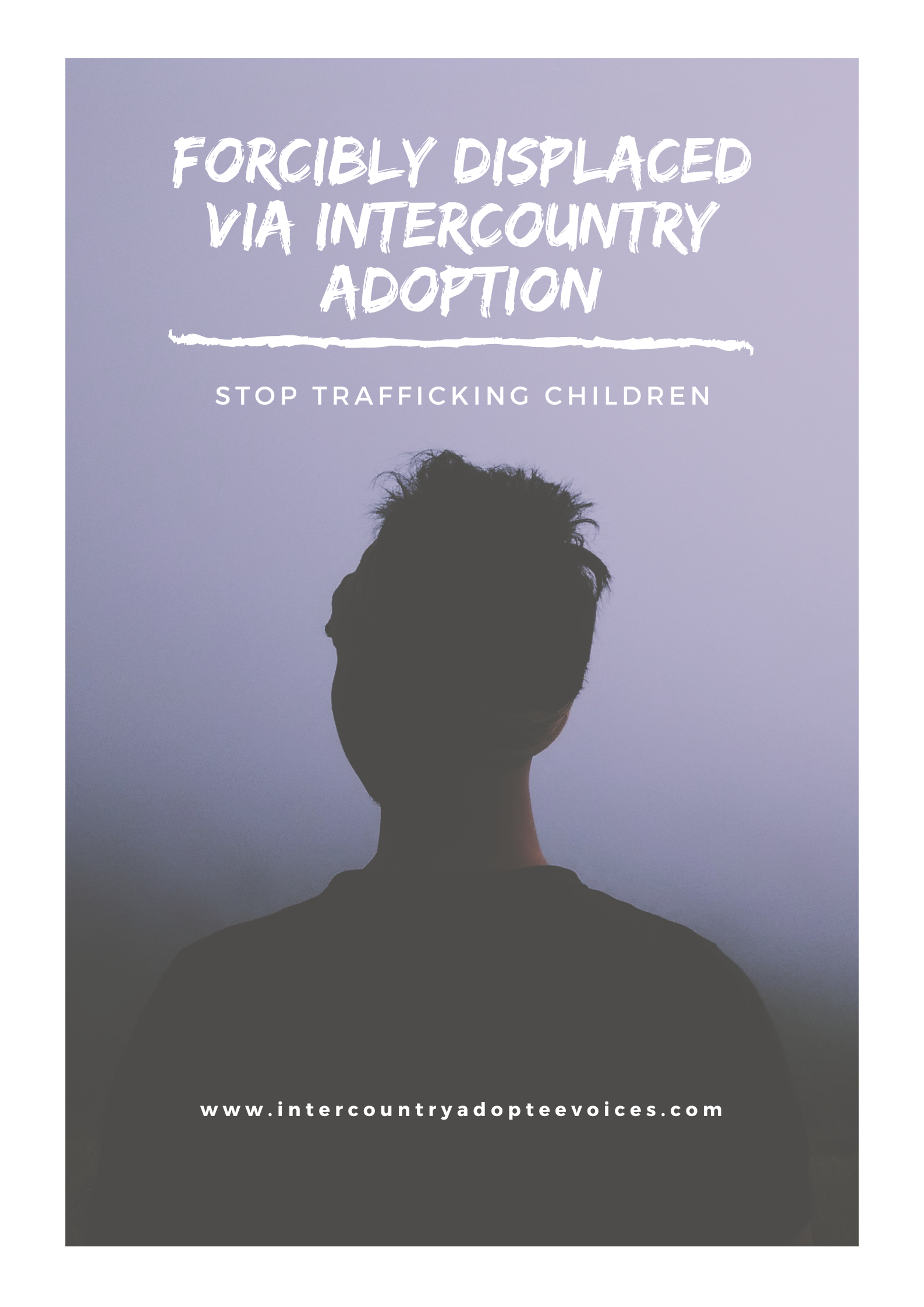As an adult intercountry adoptee, having been outspoken now for 20 years in ICAV, I’ve often wondered whether my intercountry adoption was legitimate or not. That means asking questions like: did my Vietnamese parents really understand the legal concept of “adoption” and relinquishment? Were they offered any other types of support to keep me? Given I came out of war torn Vietnam, was my status really as a true orphan with no surviving parents or family? Was family and kin reunification even attempted before I was adopted out to Australia? And what about any attempts to place me in my own home country first? One day I hope to find the answers to these questions if I’m lucky enough to be reunited with my biological family.
I’m sure other fellow intercountry adoptees ask themselves similar questions at some stage in their life. These are the realities we face as we grow older, mature in our understandings of the complexities of intercountry adoption, and grapple to integrate our realities with the worldwide politics that created our lives, as we know it today.
To consider oneself as trafficked as an intercountry adoptee is challenging because of the legal definition which cuts us out and doesn’t allow any legal scope to take action against the perpetrators.
Human trafficking is the illegal movement of people, within national or across international borders, for the purposes of exploitation in the form of commercial sex, domestic service or manual labour.
Trafficking in intercountry adoption certainly exists but we cannot take legal action because of the fact that no international law or framework exists to allow us to be legally considered as “trafficked” unless we can prove we fit the criteria of “exploitation for sex or labour”.
Yet within intercountry adoption, the degrees to which we can be trafficked can vary immensely. There are those who have:
- outright falsification of documentation and were stolen from their birth families, sold into intercountry adoption for profit, where legal action was taken against those who profited and it was demonstrated in a court of law, that wrong doing had transpired.
- documentation that could appear suspicious but at the time not questioned further; demonstrated years later to be inconsistent or incorrect.
- paperwork that appears legitimate, but at reunion decades later, the story from birth parents does not match in any way the documentation provided by the adoption agency / facilitator.
- no identity paperwork exists due to having been a “lost” child and with little attempt to reunify back with family, we became sold/transacted via intercountry adoption.
Where does the spectrum of having been “trafficked for intercountry adoption” start or end? Difficult to discuss when the concept is not allowed to exist in law. Even ISS International’s best practice learnings from these types of scenarios don’t label it “trafficking”, but refer to it as “illegal adoptions” in their Handbook. And out of the conclusions and recommendations in that handbook, the question has to be asked how many of the Hague signatories have a process to enable biological family, adoptive parents, or adult adoptees who suspect illicit practices (i.e., trafficking) be given any type of support or process – financially, legally, or emotionally?
On 7 December 2017, ICAV facilitated a small group of 7 intercountry adoptees representing India, Taiwan, and Sri Lanka to request the Australian Federal Government, via Department of Social Services (DSS), consider providing some financial support to those who have been trafficked in various degrees. For these adoptees, no amount of money is ever going to compensate for their losses and trauma directly brought on by the degree of trafficking they have endured. Not to mention their biological family! But we can at least ask that some forms of restorative justice be provided by the powers to be who facilitate adoptions and allow it to continue.
There is no way of ultimately fixing the dilemma caused by trafficking in intercountry adoption because adoption IS legally binding, despite the existence of cases of successful prosecution against those who falsified documents.
Sadly, the only legal case that can be made in intercountry adoption for known trafficking is for falsification of documents. The perpetrators get a slap on the wrist, some jail time, and a small fine (compared to how much they profited). In comparison, what does the adoptee or biological family get? Nothing. Not even services to help them move through and past this unnecessary trauma.
I want to raise awareness of the impacts trafficking has on those adoptees who have to live it, forever. Their voices are unheard and diminished by those who advocate for adoption. Their experiences go by without us learning from the mistakes and putting in place much needed processes and international laws to prevent further injustices like theirs. For them, even when the perpetrator is punished by law, they as adoptees are left to live the consequences with NO recognition of what they’ve had to endure. There is NO justice for them.
Please read Roopali’s story. Hers is an example of living the lifelong consequences of an adoption in which it appears her first parents did not voluntarily consent, nor was she a true orphan, and she was old enough to be listened to and given a choice. Her story gives voice to the extra challenges endured directly as a result of having been “trafficked” to some degree. She was brave enough to share her story to the Australian Government with ICAV in 2015 when we met the Prime Minister’s Senior Advisors. There was not a single dry eye in the room, we were all so affected by the obvious trauma she endures day to day. Trafficking of vulnerable children via intercountry adoption needs to stop!
I hope Roopali’s story encourages others to speak out and demand from their governments that action towards legal recognition of “trafficking” via intercountry adoption AND restorative justice needs to occur.

Leave a ReplyCancel reply